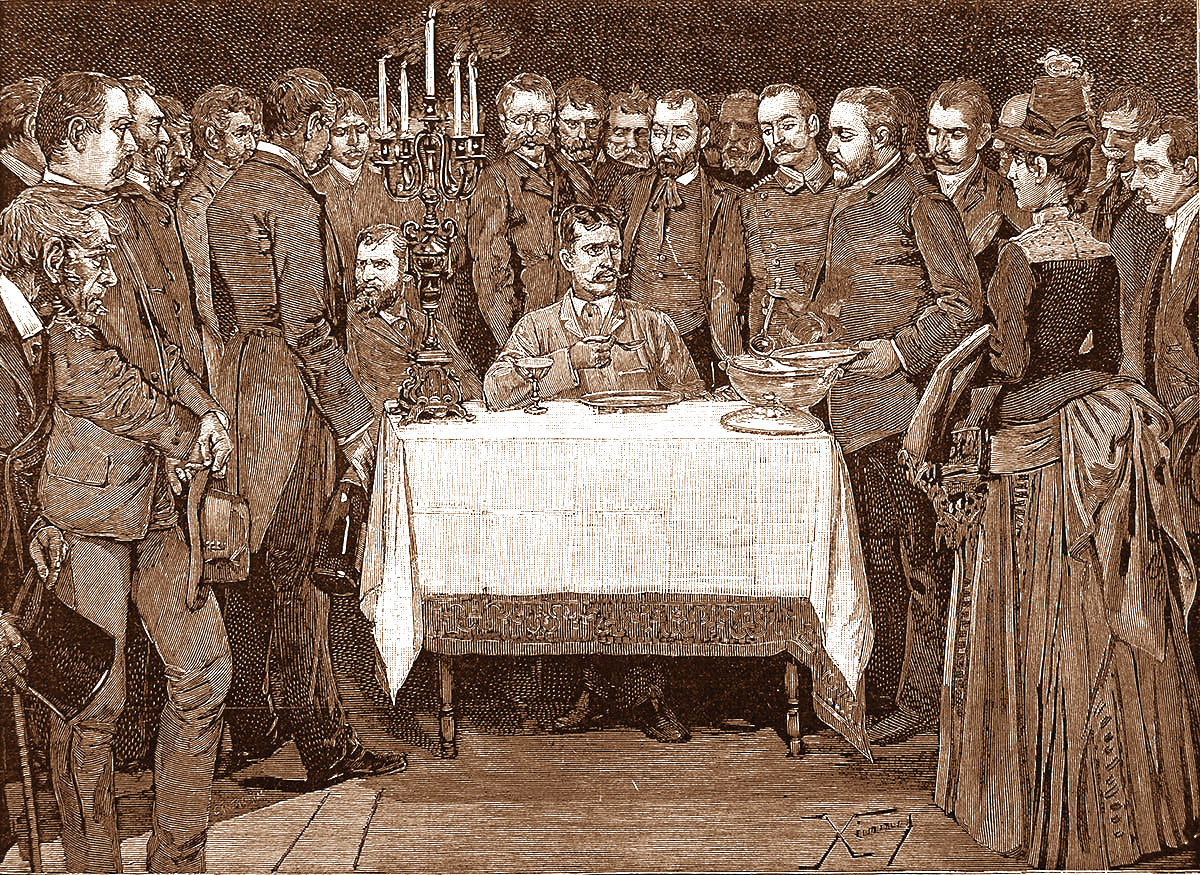 Fasting is a very ancient practice that seems to take place in all cultures. However, there are some curiosities on the subject. We tell you the curiosities about fasting, since it is a rite practiced in all existing cultures in the world. Although it is considered a ritual, it has currently been taken as an alternative to be healthier. Likewise, it is a practice that has been practiced since prehistoric times. All cultures of the world have some special occasion, when people stop eating or drinking. Taking as homage to the deities.
Fasting is a very ancient practice that seems to take place in all cultures. However, there are some curiosities on the subject. We tell you the curiosities about fasting, since it is a rite practiced in all existing cultures in the world. Although it is considered a ritual, it has currently been taken as an alternative to be healthier. Likewise, it is a practice that has been practiced since prehistoric times. All cultures of the world have some special occasion, when people stop eating or drinking. Taking as homage to the deities.
Nowadays, fasting is a common practice anywhere in the world, mostly for health reasons, aesthetics, or both. It is important to underline that, for the most part, the studies conducted on the subject state that it generates positive effects on some aspects of health.
Despite this, there are large numbers of people around the world who claim to experience improvements in their mood and health from fasting. Of course, it takes will and a lot of determination to put these kinds of restrictions into practice. Where the safest thing is that they generate emotional well-being in those who can reach it.
 FASTING IN HISTORY
FASTING IN HISTORY
Everything indicates that it has a religious and mystical origin. Therefore, there are very clear references to this practice in the oldest books of Taoism, Judaism, Hinduism and Jainism. Nothing else in the Bible, there are more than 300 passages where the subject is discussed. It is known that in many ancient cultures shamans have the custom of fasting before performing their rituals.
Similarly, the Normans had a habit of fasting before going into battle. Because they believed it was a way to deal with death, keeping the body and spirit purified. Following this point, it was common among the Aryans to fast one day a week.
There are also reports that certain North American Indians fasted to ward off catastrophes or to attract fertility to the earth. The Incas and Aztecs practiced fasting because they believed it was a fundamental condition for establishing contact with their deities.
Another thing is that Plato and Socrates fasted regularly, it is believed that they stopped consuming food periodically for 10 days in a row. One of the conditions that the philosopher Pythagoras required to enter his school was to fast for one day.
 PROFESSIONAL FASTING
PROFESSIONAL FASTING
There was a time when fasting was a profitable business. Those people who struggled with this were characters who were called “professional fasters.” Giovanni Succi , was the most famous of them. An Italian who started creating a fortune by making a great show of resistance in Buenos Aires. But that has been described by many as a quack.
Among the first exploits of this artist of hunger is that of remaining locked up in a cage for 30 days, in what is the San Martín theater, without having tasted any type of food. Drinking only water. People had to pay a ticket to see it, and more than 47,000 spectators are said to have come to see it. It is also said that the restaurateurs attempted to break his voluntary fast, but failed.
Like Succi, there were other professional fasters towards the end of the 19th century and the early 20th century. Tanner completed the challenge of going 44 days without eating and it made him a millionaire in the United States, thanks to the money he received for his show. Something very interesting is that scientists have begun to study these people and, in this way, have managed to obtain the first data on the effects of fasting.
 HUNGER STROKE
HUNGER STROKE
It has become clear that most people fast for health or religious reasons. However, stopping consuming food has also been used as a method of protesting against injustice or with the aim of getting something in return. This is what is known as a political fast or hunger strike.
One of the leaders who implemented the hunger strike as a systematic tool was Mahatma Gandhi. He undertook a total of 17 hunger strikes, each lasting between 7 and 24 days. Just 10 days before his death, he made one in order to promote harmony between Hindus and Muslims.
The longest hunger strike in history is believed to have been carried out by Irom Sharmila . Chi is a human rights activist who started the fast in 2000 and ended it in 2016. Her purpose was to protest the death of 10 civilians at the hands of the Indian Army.
Once she stopped eating, she was charged with the felony of attempted suicide and forced to consume food through a nasal tube. She stayed that way for nearly 20 years, with a few interruptions. When you finished your protest, you joined the political struggle of your country. Without the slightest doubt, it is the most dramatic fast in all of history.
Fasting is a spiritual practice
As mentioned, fasting was initially practiced for sacred reasons, it was practiced collectively, in certain periods, where the objective was to pay homage to a deity. Currently, this spirit is maintained in practices such as in the case of Catholic Lent or Ramadan which belongs to Muslims. Over time, the great benefits of fasting have been discovered.
From various medical approaches, it is considered a process that works to detoxify the body and contribute to the improvement of various diseases . Similarly, practicing fasting benefits the mind and spirit, which requires putting will and resignation into play.
Thus fasting is an act of voluntary austerity. For this reason it has the ability to strengthen the mind and helps improve the ability to concentrate. Somehow, it allows the mind to be freer to focus on self-knowledge and recognition. Being a test for the will, however, it must not be carried to the point of infringing the mind or the organism.
FASTING AND THE POWER TO QUIT
Despite the fact that today’s society places a lot of emphasis on extending one’s potentialities towards having, the truth is that it may take much more capacity to give up. Certain philosophies have insisted that the more a person possesses, the less free he will be. His mind and his heart have to come to terms with these spiritual and material goods and, instead of putting them at his service, he remains tied to them.
It is often said that the rich are not those who have the most, but those who need the least. This sentence is very true, to the extent that necessity places us in a perspective of lack and vulnerability . And it has become clear that much of what we need has more to do with an imposition of the market and society than with a real lack. However, we forget or ignore it very often. Because of this, people end up being what is known as the chronically needy.
Voluntarily depriving yourself of food allows you to enter a new perspective. Being a practice that forces you to look towards yourself. Perceive more clearly the signals sent by the body and identify emotions. Those who fast have said that it greatly increases perception and sensitivity during periods of fasting. The result of this practice, if done correctly, is beneficial for the emotional part.
You experience greater power in yourself and this increases self-esteem and confidence. A feeling of well-being for the achieved result develops and tolerance towards frustration develops. Those who practice fasting are calm people, sensitive to themselves and with more self-control.
 FASTING AND HEALTH
FASTING AND HEALTH
Practicing fasting could increase life expectancy and decrease the degenerative rate of neurons in diseases such as Alzheimer’s or Parkinson’s. It also reduces oxidative processes in each of the body’s organs. Delay the appearance of chronic diseases related to aging.
Fasting also boosts cognitive abilities by promoting the ability of neurons to maintain and make connections with each other. Seeing itself reflected in an exponential increase in the ability to learn and in the growth of memory. One could say that fasting offers benefits similar to those generated by physical and mental exercise . It is recommended to practice it at least once a week.









